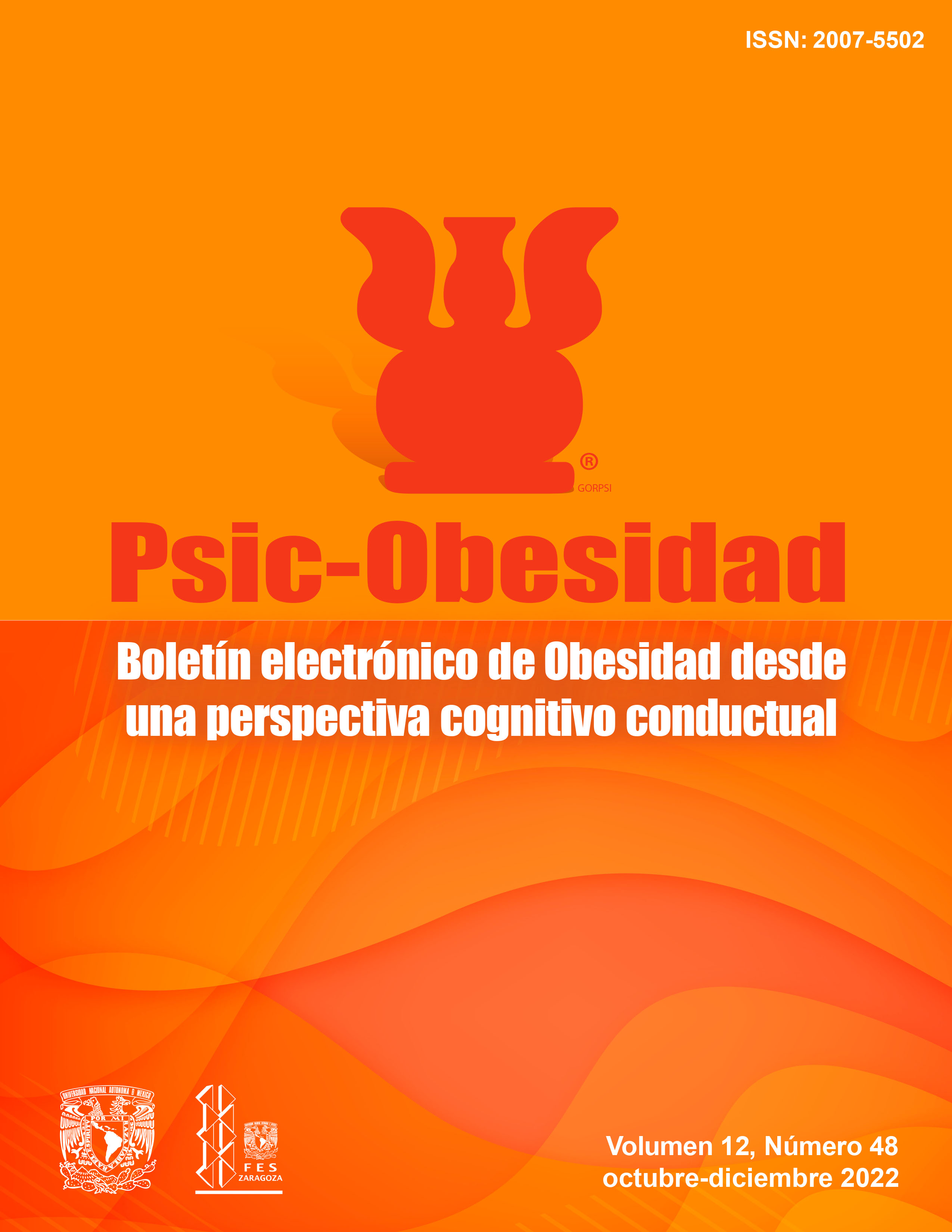How how? Prevention of childhood obesity
Main Article Content
Abstract
The pandemic status of COVID 19 infectious disease has impacted food consumption habits and the daily routine of families. Eating habits have not been the exception, online food shopping, home food preparation and reduced physical activity, maintains obesity rates in the population, particularly in minors whose activity is reduced to the home space and the use of digital devices. Strategies for the prevention of childhood obesity focus mainly on nutrition and exercise, in addition to avoiding the consumption of processed products and, as far as possible, preventing them from being a reserve in the pantry, as well as involving family members in the preparation of food and preparing them creatively, are examples of what has been proposed for this fight. This paper shows three strategies used in prevention programs with psychoeducational strategies that contain relevant information and proposals for change for the benefit of the individual.
Downloads
Article Details
Citas en Dimensions Service
References
Instituto Mexicano del Seguro Social (IMSS). Dirección General de Atención Materno Infantil (1996) Alimentación del niño en preescolar. México.
Instituto Mexicano del Seguro Social (IMSS). (2014). Guía de referencia rápida de grupos de alimentos y patrones de alimentación saludables para la prevención de enfermedades adultos y pediátricos, 1º, 2º, 3er nivel de atención. https://imss.gob.mx/sites /all/statics/guiasclinicas/225GRR.pdf
La Isla (1994). Idea Niño Gordo Sano. http://laisla.com/uned/indice.htm
Organización Panamericana de la Salud (PAHO) (2021). Proyecto de Ley Promoción de la Alimentación Saludable: postura conjunta de OPS/OMS, UNICEF y FAO. https://www.paho.org/es/ documentos proyecto-ley-promocion-alimentacion-saludable-postura-conjunta-opsoms-unicef-fao




